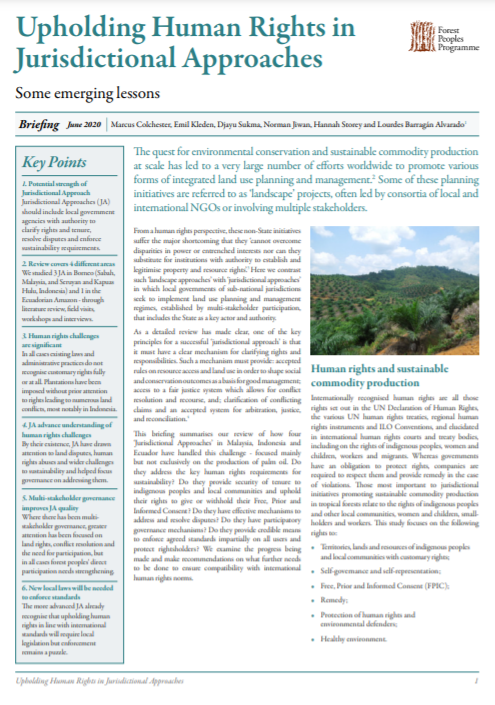Upholding Human Rights in Jurisdictional Approaches: Some Emerging Lessons
This paper contrasts ‘landscape approaches’ with ‘jurisdictional approaches’ in Borneo (Sabah, Malaysia, and Seruyan and Kapuas Hulu, Indonesia) and the Ecuadorian Amazon, in which local governments of sub-national jurisdictions seek to implement land use planning and management regimes, established by multi-stakeholder participation, that includes the State as a key actor and authority. The key points discussed are:
Potential strength of Jurisdictional Approach
- Jurisdictional Approaches (JA) should include local government agencies with authority to clarify rights and tenure, resolve disputes and enforce
Human rights challenges are significant
- Existing laws and administrative practices do not recognise customary rights fully or at all. Plantations have been imposed without prior attention to rights leading to numerous land conflicts, most notably in Indonesia.
JA advance understanding of human rights challenges
- By their existence, JA have drawn attention to land disputes, human rights abuses and wider challenges to sustainability and helped focus governance on addressing them.
Multi-stakeholder governance improves JA quality
- Where there has been multistakeholder governance, greater attention has been focused on land rights, conflict resolution and the need for participation, but in all cases forest peoples’ direct participation needs strengthening.
New local laws will be needed to enforce standards
- The more advanced JA already recognise that upholding human rights in line with international standards will require local legislation but enforcement remains a puzzle.
